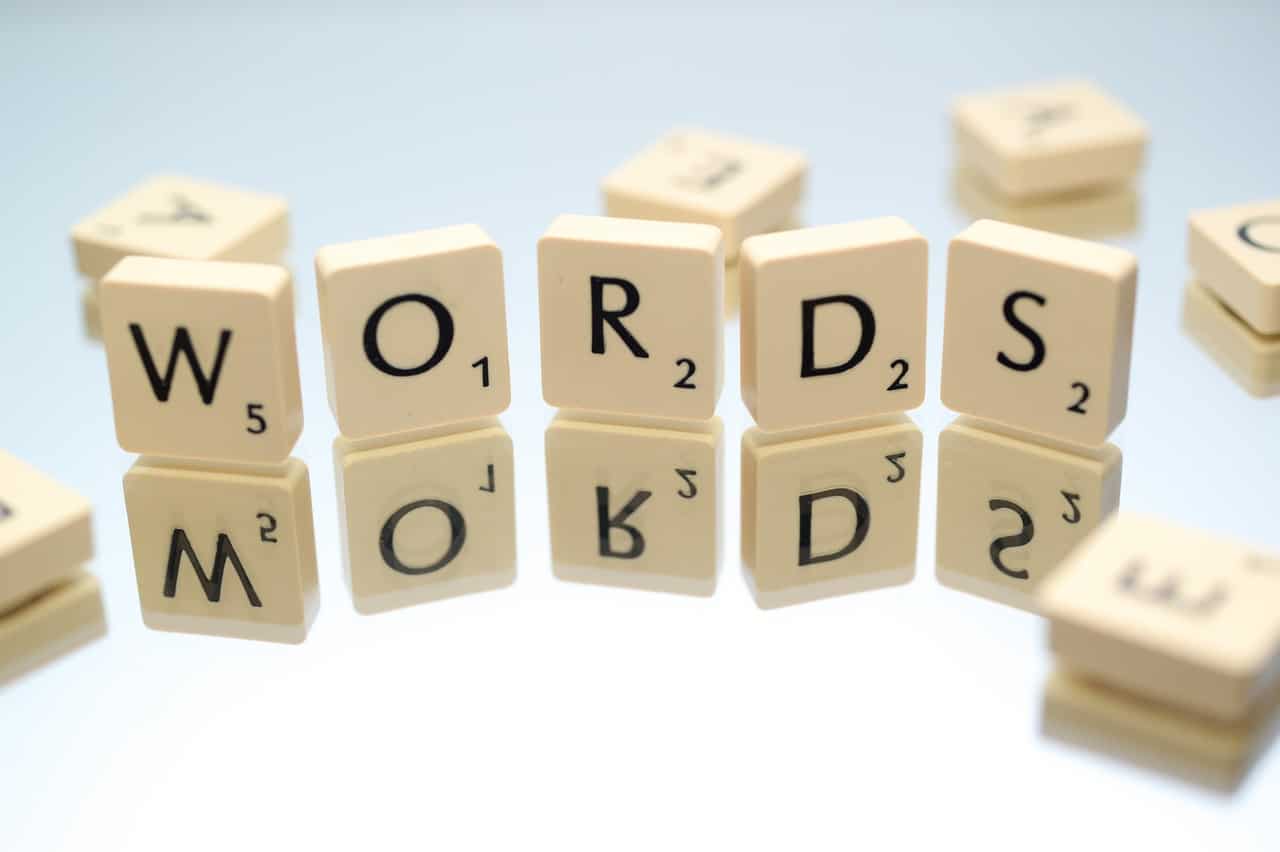If you’re learning German pronunciation, you may have realized that German vowels are one of the most difficult things to grasp. Unlike consonants, which usually have at most two possible sounds when you read a word, each German vowel can have even half a dozen different possible sounds! If this sounds a little overwhelming to you, don’t worry — we’ve created this guide for you with everything you need in order to master German vowel pronunciation. Here’s what we’ll cover:
- How to learn the pronunciation of German vowels;
- Short vowels versus long vowels;
- Associations between German vowels and English sounds;
- Why you should first learn vowel sounds, then diphthong sounds;
- Examples of German vowel pronunciation;
- An exercise for practicing German vowel pronunciation;
- How to improve your German with Global General.
If you’re interested in improving your German pronunciation, and specifically how to correctly pronounce the German vowel sounds, then keep on reading.
Let’s get started.
How Should You Learn to Pronounce Vowels in German?
When you’re learning how to pronounce vowels in German, remember to take it slow and be patient. Learning quickly will not make you better — on the contrary, it may make you mix up the sounds or learn them the wrong way!
Before learning to pronounce vowels, you should first of all learn the German alphabet and its pronunciation. This will ensure that you know all of the letters before actually starting to work on their pronunciation.
Try first practicing the vowel sounds on their own, repeating the vowel sound out loud several times. It’s best to do this with a mirror to see the shape your mouth is making. Another useful technique is to record yourself and compare your vowel sound to a recording of a German native speaker pronouncing them.
Once you feel comfortable with the vowel sounds, it’s time to practice them in the context of words. We have provided examples of German words for each vowel sound down below, as well as great tips for exercises you can practice in order to improve during both of these steps. Learning to pronounce vowels in the context of words correctly will be very helpful if you wish to get a good German accent.

#1: There Are Two Types of Vowels in German: Short and Long
Short vowels
| German Vowel | Phonetic symbol |
|---|---|
| Short A | /a/ |
| Short E | /ɛ/ |
| Short I | /ɪ/ |
| Short O | /ɔ/ |
| Short U | /ʊ/ |
| Short Ä | /ɛ/ |
| Short Ö | /œ/ |
| Short Ü | /ʏ/ |
Long vowels
You’ll notice one thing that all the phonetic symbols for long vowels have in common: they are all followed by what looks like a colon made of tiny triangles. This is the phonetic symbol that tells you to hold a vowel sound for longer when you say a word. Here is a chart showing the long German vowels below.
| German Vowel | Phonetic symbol |
|---|---|
| Long A | /aː/ |
| Long E | /eː/ |
| Long I — sometimes followed by “e” | /iː/ |
| Long O | /oː/ |
| Long U | /uː/ |
| Long Ä | /ɛː/ |
| Long Ö | /øː/ |
| Long Ü | /yː/ |
#2: Associate the Pronunciation of Vowels to English Words
Though no vowel sounds will be the exact same in any two languages, it may be comforting to know that there are still many similarities in the vowel sounds of German and English. There is often an exact match of a vowel sound in German and one in an English word — and when there is not, there is usually a very close approximation to an English vowel sound that you can use to help you learn correct German pronunciation. Below is a chart that shows all the main vowel sounds in German combined in one chart as well as how you can associate each of them with corresponding sounds in English words. You can use this chart if you wish to improve your German pronunciation.
| IPA sound | English approximation |
|---|---|
| Monophthongs | |
| /a/ (short A) | bra (but shorter) |
| /aː/ (long A) | bra |
| /ɛ/ (short E / Ä) | red |
| /ɛː/ (long Ä) | like above but longer; |
| /eː/ (long E) | base (but longer) |
| /ɪ/ (short I) | bit |
| /iː/ (long I) | sleep |
| /ɔ/ (short O) | cross |
| /oː/ (long O) | similar to bone |
| /œ/ (short Ö | similar to hurt or “sœur” in French |
| /øː/ (long Ö) | similar to hurl or “deux” in French |
| /ʊ/ (short U) | book |
| /uː/ (long U) | blue |
| /ʏ/ (short Ü) | like above but shorter |
| /yː/ (long Ü) | like “rue” in French |
| Reduced vowels | |
| /ɐ/ (the a-schwa) | sun |
| /ə/ (the e-schwa) | comma |
#3: Learn the Pronunciation of Vowels First, Then Diphthongs
The German language has three diphthong sounds. What are diphthongs, you ask? Though the word sounds like it’s a scary dentist’s instrument, diphthongs are not as daunting as you may think!
They are essentially two vowel sounds pronounced smoothly one right after another. Because of this, it’s best to first start with practicing the individual vowel sounds before you try combining two of them into a diphthong. If diphthong sounds are a little tricky for you, you can even try practicing saying the two vowel sounds with a pause in between, then shortening the pause until you can say the two sounds in very close succession: then finally try saying them without pausing at all, until the first sound melts into the second one.
Once you feel comfortable with practicing German diphthongs in that way, just as with the individual German vowel sounds, you can move on to practicing them within words. But first, here are the three diphthong sounds in the German language.
| Diphthong | Practice the sounds separately | English equivalent |
|---|---|---|
| /aɪ/ | /a/ + /ɪ/ | lie |
| /aʊ/ | /a/ + /ʊ/ | now |
| /ɔɪ/ | /ɔ/ + /ɪ/ | toy |
Full List of Example Words for Practicing German Vowels
If you’ve followed our advice and practiced saying the German vowel sounds individually, it will soon be time for you to move on to practicing the vowel sounds in the context of real German words! To help you with this, we’ve put together a chart with an example for each German vowel sound that you can try reading. You must learn to read in German in order to practice all of these words in context of phrases.
| IPA sound | German example | English translation of German example |
|---|---|---|
| Monophthongs | ||
| /a/ (short A) | machen | to do |
| /aː/ (long A) | Bahn | railway |
| /ɛ/ (short E or Ä) | nett, hätte | nice, would have |
| /eː/ (long E) | sehr | very |
| /ɛː/ (long Ä) | wählen | to choose |
| /ɪ/ (short I) | bist | (you) are |
| /iː/ (long I) | Spiel | game |
| /ɔ/ (short O) | Ost | East |
| /oː/ (long O) | Boot | boat |
| /œ/ (short Ö) | Löffel | spoon |
| /øː/ (long Ö) | schön | pretty / nice |
| /ʊ/ (short U) | Dusche | shower |
| /uː/ (long U) | Hut | hat |
| /ʏ/ (short Ü) | müssen | must |
| /yː/ (long Ü) | fühlen | to feel |
| Diphthongs | ||
| /aɪ/ | drei | three |
| /aʊ/ | Haus | house |
| /ɔɪ/ | Euro | Euro |
| Reduced vowels | ||
| /ɐ/ (“a-schwa”) | Oktober | October |
| /ə/ (“e-schwa”) | bitte | please |
Suggestions of Pronunciation Exercises for German Vowels
Now you’ve learned all the vowel sounds in the German language — so what’s next? Well… practice, then practice again, and then practice once more! You can start by practicing with the charts and tips we’ve given you above. When you’re ready to try some extra resources, have a look at the following suggestions:

Paul Joyce’s German Course – Vowel Sounds
Paul Joyce, a German teacher at the University of Portsmouth, has a website where he compares pairs of German vowel sounds, for example short A and long A. He compares the two sounds with several German words, including audio you can play to hear the correct pronunciation. He then offers an exercise where there are several more German words written and recorded, and you have to listen and try to tell if each word has the short vowel sound or the long vowel sound. You can find the first pair here, and find the other pages on the left sidebar.
Fluent Forever’s Video with mouth diagrams
If you’re wondering what’s happening inside your mouth to produce the subtle differences in German vowel sounds, Fluent Forever will answer any questions in this area. In their detailed video about German vowels, they show diagrams of the mouth and tongue to help you understand and practice producing each German sound. Pause the video after each vowel is presented or practice saying it together with the speaker.
Practice and Improve Your German Online With Global General
Make sure that your German studies are well-rounded and balanced, including a focus on correct pronunciation, thanks to Global General. This is an e-learning method developed by GlobalExam to help beginners and intermediate students learn German (as well as four other languages: English, Spanish, French, and Italian), easily and online.
Each language is divided into levels based on the CEFR standards and requires a minimum of 12 study hours to complete (except for English, which requires 25).
With Global General, your German studies will be dynamic and fun. Here is what we can offer you:
- Countless flashcards to help you train your memory and learn new German words as well as their correct pronunciation;
- Simulations to let you practice communicating in German in real-life situations;
- A fun “did you know” section that teaches you facts about the German language and culture;
- 5000 detailed corrections;
- Personalised feedback from our expert language coaches;
- Validation of your acquired competencies after every 5 simulations;
- 150 hours of unique content;
- 500 audio tracks to help you learn and practice correct pronunciation.
Why Global General is the best way to learn German
You may be wondering what GlobalExam can do for you in terms of learning great German pronunciation. Well, many other German courses begin with a lesson on pronunciation, then never touch on it again. Students enrolled in courses like these may feel confident at first, but end up struggling in the long-term as they have long forgotten the basics. At GlobalExam, we make sure that our students keep using and building on the basics, so that they end up with a solid understanding of the German language. With over 500 audio tracks and personalised feedback from our team of qualified German language coaches, you’ll never find yourself wondering if you’re really saying a particular German word correctly — you’ll have the confidence in your skills and knowledge that will let you communicate with ease. What’s more, our real-life simulations ensure you put into practice what you have learnt, so that you’re already used to using the German language exactly in the way you will need to use it in the future.
In short, GlobalExam can offer you a well-rounded experience where pronunciation, as well as all the language competencies, are taught in context. See for yourself: sign up and start learning German today with GlobalExam!


